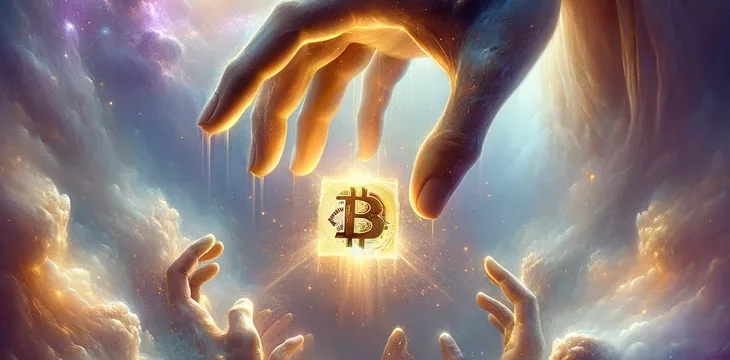|
Getting your Trinity Audio player ready...
|
As we’ve mentioned on previous Genesis Block anniversaries, this day is and isn’t the real “Bitcoin Birthday.”
Block 0 is indeed Bitcoin’s Genesis Block: before it, there was nothing, and after it, the Bitcoin world. But despite its anchoring role in blockchain history, it’s atypical of all other Bitcoin blocks—it wasn’t “mined,” its coinbase coins can’t be “spent,” and there were no users other than Satoshi Nakamoto.
Block #000001 started the every-ten-minutes process we’re now used to and marked the day the Bitcoin network became publicly available. However, the Genesis Block appeared on January 3, 2009, six DAYS before Block #000001 (January 9). January 9 is Bitcoin’s real “birthday.”
There was no Bitcoin Network in that six-day period other than the one in the garage on Dr. Craig Wright‘s farm at Bagnoo, NSW, and no transaction processors (“miners”). The Genesis Block was constructed manually in Windows XP, and the network encountered some drama before it got up and running again.
Today, the Genesis Block serves as a reference “anchor,” used to configure wallets and other software that validate the entire blockchain.
There’s a series of great articles from 2019 that explain the Genesis Block’s background in detail from Dr. Wright himself. Before that, the Genesis Block was something of a mystery to the wider Bitcoin world. The main talking point was a message Satoshi Nakamoto placed inside Block 0’s coinbase hash: “Chancellor on brink of second bailout for banks,” meant as a timestamp to mark Bitcoin’s first appearance amid the Global Financial Crisis of the time.
It also made a point about governments intervening in the economy and financial markets (and how, eventually, this would degrade the quality of both). Often misinterpreted as anti-bank and/or anti-government, the reasons for its inclusion have since been fleshed out by Dr. Wright: government and banks still have important roles to play, but both should stay in their own lane.
Unfortunately, and perhaps inevitably, Satoshi’s warning went unheeded by the powers, and Western economies continue to lurch ever closer to the cliff. More fortunately, some did heed the message, and these people spent the next decade or so becoming “Bitcoiners.”
Even Bitcoiners didn’t listen to the Genesis Block warning
But even Bitcoiners weren’t immune to the same temptations and irresponsibilities that prompted Bitcoin’s invention in the first place. Today’s “crypto industry,” as the mainstream media calls it, is a sandcastle economy built below the tideline, consisting mainly of speculative trading and get-rich-quick schemes. Far more energy and attention go toward ensuring the “numbers go up” or an ever-increasing BTC price.
Bitcoin would never have gained a user base if it cost $30 to send a single transaction of any size. Today, though, it’s not uncommon to see that on the BTC network, which claims to be the “true Bitcoin” due to its larger fanbase (which, again, is mostly speculative gamblers). In truth, BTC is neither the longest Bitcoin blockchain nor the “heaviest.” BSV, which is still the only blockchain following Satoshi’s original protocol rules, has a longer blockchain and one that contains more data overall.
BSV is still the “peer-to-peer electronic cash system” of the Bitcoin white paper’s 2008 title. The average fee in its current newest block (#824408) was 0.00000187 BSV, or US$0.000108. There are no limits on how much data can go on-chain, making it useful for financial transactions and anything else that needs to be recorded and verified—from enterprise-tier business contracts and applications to IPv6 agricultural IoT devices with unique IP addresses recording weather conditions every few seconds.
We can’t understate the benefits of an internet where the world’s data is recorded permanently, timestamped and auditable forever. Information on today’s internet is routinely changed or deleted to alter the historical record in an Orwellian fashion. It is at the mercy of a cartel of technology industry giants and government policymakers rather than the individuals or organizations that created it.
“Free the markets, free the world” was an unofficial early Bitcoin slogan. Today, we understand that data ownership and control are what will set us free. This concept breaks the slavery chains put around our ankles by the technology giants who’d prefer us to stay dumb, quiet, and entertained, but only by the entertainment they deem acceptable. Big Data should be about a decentralized data economy, where those who create the information can earn income from it, and only a blockchain that stores this kind of information will make the true data economy a reality.
The Genesis Block is an essential anchor in many ways. To software code, it’s a reference point to validate everything that came after it. For humans, it’s a reminder that Bitcoin was supposed to change the world. That hope remains.
Watch: On the very start of Bitcoin

 02-17-2026
02-17-2026 




